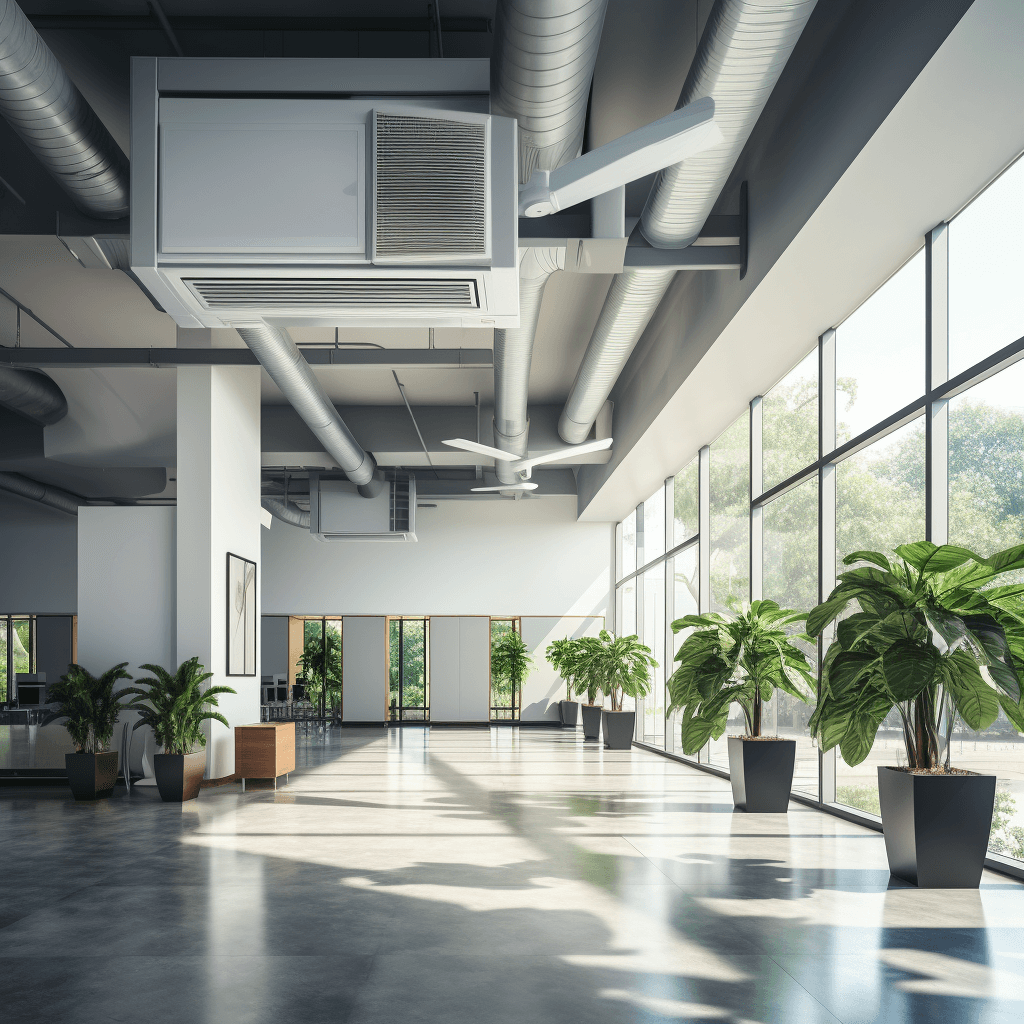How Commercial HVAC Systems Filter Air: A Comprehensive Guide by AirGreen
At AirGreen, we pride ourselves on delivering top-tier Commercial HVAC (Heating, Ventilation, & Air Conditioning) systems and services to Greater Montreal, Laval, Longueuil, South Shore, and North Shore. We understand that a clean, well-ventilated environment is crucial to the health and productivity of your employees and the satisfaction of your customers. Central to providing this is the air filtering process of commercial HVAC systems. This article explores in depth the topic "How does a commercial HVAC system filter air?" and gives valuable insights into the significance of air filtration and how it is achieved.
The Importance of Air Filtration in Commercial HVAC Systems
Air filtration in HVAC systems plays a vital role in creating a healthy indoor environment. It improves air quality by eliminating pollutants and allergens, which can include dust, pollen, mold spores, bacteria, and more. By removing these contaminants, HVAC systems prevent health issues such as allergies, asthma, and other respiratory problems. Moreover, air filtration can also enhance the longevity and efficiency of the HVAC system by preventing the buildup of dust and debris on essential components.
The Air Filtration Process
The air filtration process in commercial HVAC systems is a cycle of multiple stages:
- Air Intake: First, the HVAC system pulls in air from the surroundings. This air could be outdoor air, indoor air, or a mix of both, depending on the ventilation setup.
- Pre-Filtration: This is the initial stage of filtration, where larger particles like dust and hair are removed. This stage helps protect the subsequent components from damage or excessive dirt accumulation.
- Main Filtration: The main filtration stage involves the removal of smaller particulates. HVAC systems use a variety of filters for this purpose, including media filters, HEPA filters, and more.
- Final Filtration: In some systems, especially in environments requiring exceptionally clean air, like healthcare facilities or laboratories, a final filtration stage is included. This can use high-efficiency filters to capture ultra-fine particles.
- Supplying Clean Air: After filtration, the HVAC system conditions the air (heating, cooling, humidifying, or dehumidifying as needed) and distributes it throughout the commercial space.
Different Types of Air Filters
The efficiency of air filtration largely depends on the type of air filter used. The most common types are:
- Fiberglass Filters: These are the most basic types, trapping large dust particles. However, they are not as efficient in capturing smaller particles.
- Pleated Filters: More effective than fiberglass, these filters have pleats that increase the surface area, improving their ability to capture particles.
- HEPA Filters: High-Efficiency Particulate Air (HEPA) filters are among the most effective, capable of trapping 99.97% of particles that are 0.3 microns or larger.
- Activated Carbon Filters: These filters are effective in removing odors, gases, and chemical pollutants, providing both particulate and odor filtration.
- Electrostatic Filters: These filters use an electrostatic charge to attract and capture dust particles.
- UV Filters: While not used for particle filtration, UV filters (UV lights installed within the HVAC system) can kill bacteria, mold, and viruses.
Regular Maintenance for Effective Air Filtration
For a commercial HVAC system to filter air effectively, regular maintenance is crucial. This includes timely filter replacements and cleaning. Filters clogged with debris can't effectively capture new particles and can force the HVAC system to work harder, resulting in energy inefficiency and potential system failure. At AirGreen, we offer comprehensive HVAC maintenance services, ensuring that your system continues to provide high-quality air filtration for a healthier indoor environment.
Conclusion
A commercial HVAC system's air filtration process plays an essential role in maintaining a healthy and comfortable indoor environment. By understanding how this process works, businesses can make informed decisions about their HVAC systems and ensure they are maintaining them properly for maximum efficiency and longevity. AirGreen is dedicated to providing businesses throughout Greater Montreal, Laval, Longueuil, South Shore, and North Shore with superior HVAC services, ensuring your commercial space achieves the perfect balance of comfort, air quality, and energy efficiency.

